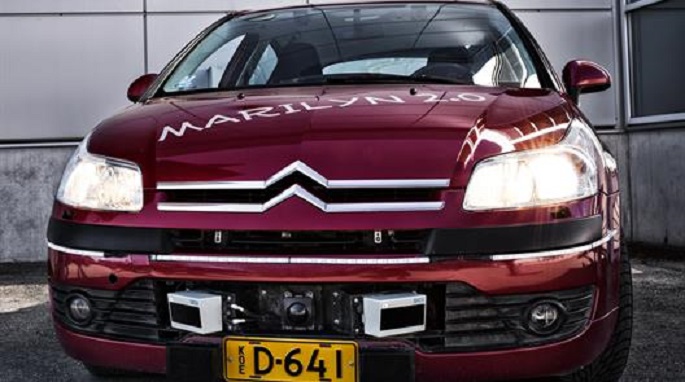VTT robot car undergoes test parking autonomously
Published : 20 Jun 2018, 03:01
The robot car of Finnish Technical Research Centre (VTT) named Marilyn is currently undergoing tests on fully autonomous parking in the area furthest from its driver, at a distance of up to a hundred metres, said an official press release on Tuesday.
The Internet of Things assists the car in finding and driving into a free space.
"Automated parking allows for room for more vehicles, as they can be parked closer together without fear of collision in parking areas at sites such as airports and shopping centres. The technology also opens up opportunities for optimised logistics and reduced congestion in parking areas," said Johan Scholliers, Project Manager at VTT Technical Research Centre of Finland.
The robot car Marilyn tests automated valet parking as part of the AUTOPILOT project, which is funded by the European Commission to investigate the potential of IoT in automated driving.
Tampere is one of the project's European test sites alongside Livorno, Italy, Brainport (Helmond-Eindhoven), Netherlands, Versailles, France and Vigo, Spain. The project also has a test site in Daejeon, South Korea.
In its automated parking demonstration, the VTT Marilyn utilises UWB-based positioning technology by HERE, which is able to position vehicles indoors without the need for satellite positioning. UWB, or Ultra Wideband, is a radio technology that transmits data in extremely short and low-power pulses over a very wide frequency band (e.g. 1—2 GHz).
In practice, the car is parked by means of a specially developed application that the driver can use to reserve a parking space. Once the car arrives at the parking area entrance, the parking guidance system verifies that the space is free, checks for potential obstructions along the route using traffic cameras connected to an open IoT platform, and transmits the route information to the vehicle. Assisted by IoT, the car then drives automatically to its reserved space.
The AUTOPILOT project focuses on five different driving modes, with automated valet parking technology under development and testing at VTT in Tampere. The project is also developing a range of services for various driving modes, such as platooning and car sharing.
In the future, VTT will also demonstrate the use of traffic cameras at stop lights to assist automated driving in situations where a turning vehicle must be able to detect and give way to pedestrians and cyclists.
The project will run until December 2019.


